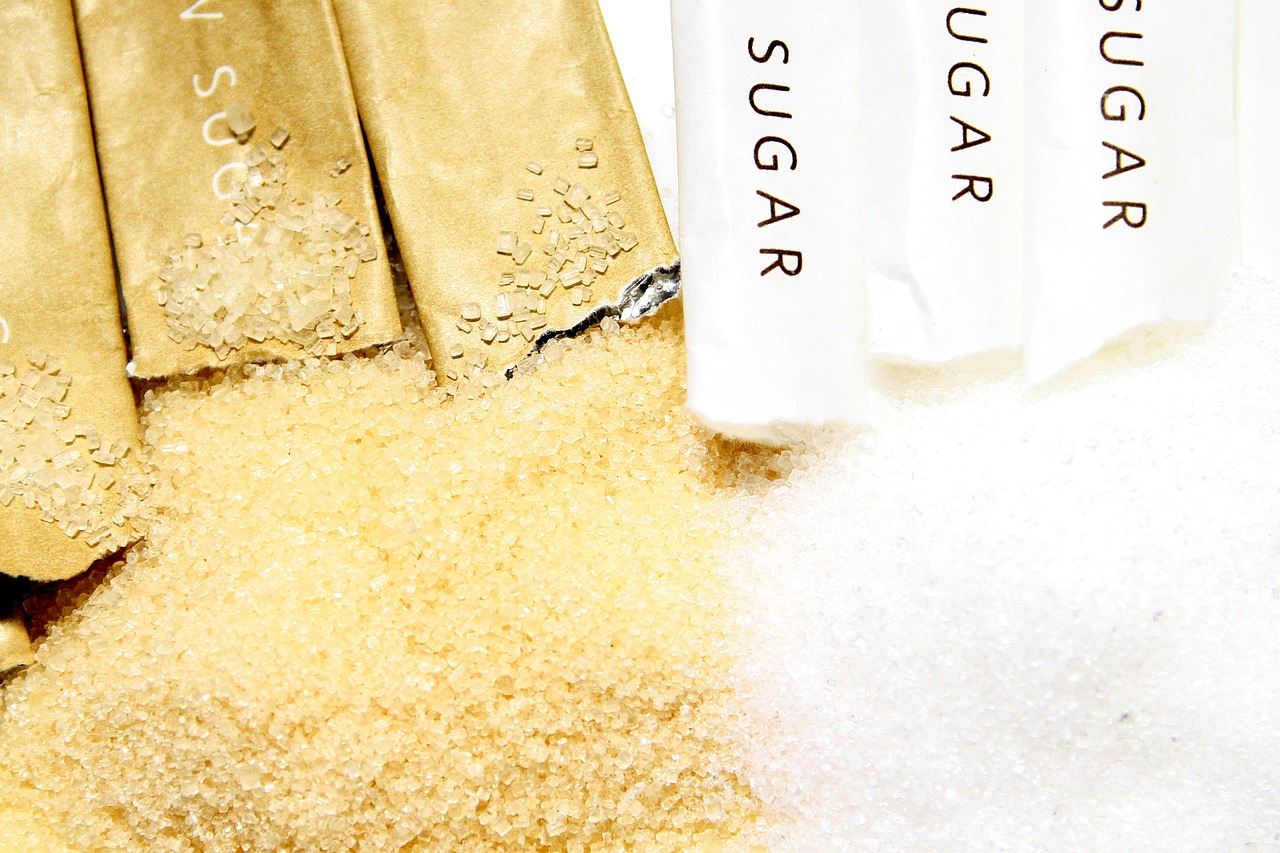These Are 10 Interesting Reasons Why You Are Craving Sugar

Sugar is an intrinsic part of modern diets, often hidden in unsuspected foods and drinks, and can be a source of comfort for many. While an occasional sugary treat might not be harmful, consistent and intense cravings can be indicative of underlying issues or habits that need addressing. This article will explore ten reasons behind our sugar cravings and provide insights into each one.
Why Am I Craving Sugar?
1. Brain Chemistry
Our brains are wired to seek out sugar. When we consume sugar, it triggers the release of dopamine, a neurotransmitter responsible for pleasure and reward.
Sugar as a Reward System: Historically, sweet foods like fruits were beneficial for our survival, so our brains evolved to see sugar as a reward. This evolutionary trait, while advantageous in times when food was scarce, can be problematic in today’s world where sugar is omnipresent.
The Dopamine Cycle: Consuming sugar consistently can cause the brain to become reliant on it to release dopamine. Over time, more sugar might be needed to achieve the same pleasure sensation, leading to increased cravings.
2. Blood Sugar Fluctuations
Our body’s ability to regulate blood sugar is crucial for energy and mood stability. When imbalances occur, we might crave sugar to restore balance.
Immediate Energy Source: Sugar provides a quick energy boost. When blood sugar levels drop, the body craves a rapid source of energy, often leading to sugary snack choices.
The Spike and Crash: After a sugar rush, there’s an inevitable crash. This decline can prompt another craving, creating a vicious cycle of highs and lows.
3. Emotional Eating
Many people turn to sugar as a way to cope with emotions, whether it’s stress, sadness, or boredom.
Comfort in Sweetness: Sugar can provide temporary relief from negative feelings. It acts as a quick mood booster, leading many to associate sweetness with comfort.
Temporary Solution: While sugar can provide a momentary escape from unpleasant emotions, it doesn’t address the root cause, often leading to recurring cravings whenever those emotions arise.
4. Poor Sleep Patterns
Lack of adequate sleep can impact our body’s hunger hormones, leading to increased sugar cravings.
Seeking Energy: When tired, the body seeks quick energy sources to compensate, and sugar is a prime candidate.
Disrupted Hormones: Sleep deprivation can disrupt the balance of hunger hormones like leptin and ghrelin, often intensifying sugar cravings.
5. Habitual Consumption
Repeatedly consuming sugary foods can turn into a habit, making it a default choice without much thought.
The Power of Routine: Humans are creatures of habit. If one is used to a sugary treat after dinner, skipping it might feel odd or unsatisfying.
Breaking the Cycle: Habits can be hard to change. Recognizing and being mindful of these patterns is the first step towards making healthier choices.
6. Microbiome Imbalance
Gut health plays a role in our food preferences. An imbalance in gut bacteria can intensify sugar cravings.
Bacteria’s Favorite Food: Some gut bacteria thrive on sugar. When they dominate, they might send signals to the brain, prompting sugar intake.
Restoring Balance: A diverse gut microbiome can help mitigate extreme cravings. Consuming a variety of foods and fibers can foster a balanced gut environment.
7. Nutrient Deficiencies
Sometimes, our body craves sugar when it’s lacking in certain nutrients, misinterpreting the need.
Misguided Cravings: A deficiency in minerals like magnesium or chromium can manifest as sugar cravings, even though sugar doesn’t provide these nutrients.
Addressing the Root: Identifying and rectifying nutritional deficiencies can help reduce or eliminate associated sugar cravings.
8. Social and Cultural Influences
Being in environments where sugary foods are celebrated and omnipresent can trigger cravings.
Peer Pressure: In many social situations, indulging in sugary foods is the norm. This can create an urge to partake even if one isn’t particularly craving sugar.
Cultural Celebrations: Festivals, holidays, and celebrations often revolve around sweet treats, making it hard to resist sugary temptations.
9. Restricted Diets
Paradoxically, strictly limiting sugar or going on extreme diets can lead to intense sugar cravings.
Rebound Effect: Denying oneself of sugar completely can lead to a rebound effect where the cravings intensify.
Moderation is Key: Finding a balance in sugar consumption can help avoid feelings of deprivation and subsequent extreme cravings.
10. Hormonal Changes
Hormonal fluctuations, especially in women, can influence sugar cravings.
PMS and Sugar: Many women report increased sugar cravings in the days leading up to their period, possibly due to fluctuating hormone levels.
Menopause and Beyond: Hormonal changes during menopause can also influence appetite and cravings, with sugar often being a primary target.
Craving Granulated Sugar
Craving granulated sugar can be attributed to the body’s need for a quick energy boost, as sugar provides an immediate source of fuel for our cells. It can also be a sign of an underlying preference for sweet tastes, which humans are naturally inclined towards from birth. Psychological factors, such as seeking comfort or a reward, often play a role in these cravings.
Moreover, a lack of certain nutrients in the diet, such as chromium, magnesium, or zinc, might lead to a desire for sugary foods. People might crave granulated sugar when they’re experiencing fluctuations in blood sugar levels, especially after consuming a meal high in carbohydrates that leads to a rapid increase followed by a drop in blood sugar. Lastly, habitual consumption of sugar can condition the brain to crave more of it, creating a cycle of craving and consumption that can be hard to break.
Craving Sugar After Eating
Craving sugar after eating can occur if the meal consumed was rich in carbohydrates or lacked balance, leading to rapid changes in blood sugar levels. Such cravings might also stem from the body’s learned response to expect a sweet ending to meals, a habit that can be formed from childhood. Furthermore, if the body does not receive adequate nutrients from the meal, it may signal for more food, often in the form of simple sugars for quick energy.
Insulin spikes after a high-carb or sugary meal can lead to a drop in blood sugar, prompting cravings for more sugar to normalize levels. Psychological factors, including the association of desserts with satisfaction or reward, can also trigger these cravings. Additionally, an imbalance in gut bacteria may play a role, as certain microbes preferentially feed on sugars and may influence cravings.
Craving Sugar After Waking Up
Craving sugar after waking up might be linked to low blood sugar levels, a common condition after a night’s fast. The body seeks a rapid source of energy to break the fast, often desiring sugary foods for quick glucose. Additionally, poor sleep quality or insufficient sleep can disrupt hormonal balance, increasing cravings for sugary foods as the body looks for instant energy to compensate for the lack of rest.
Hormonal fluctuations upon waking, particularly in cortisol, the stress hormone, can also lead to sugar cravings as part of the body’s natural wake-up process. A habit of consuming sweet foods or beverages in the morning can reinforce these cravings over time. Stress and the anticipation of a stressful day ahead may also drive one to seek comfort in sugary foods, associating them with a mood boost or a reward to start the day.
Craving Sugar After Workout
Craving sugar after a workout is primarily due to the body’s need to replenish glycogen stores in the muscles, which are depleted during exercise. Consuming simple sugars can provide a quick source of energy for recovery. Additionally, intense or long-duration physical activity can lead to drops in blood sugar levels, making sugary foods attractive for their fast-acting energy.
The endorphin release associated with exercise can also enhance the pleasure of eating sugary foods, making them more desirable post-workout. Some people might habitually turn to sugary treats as a reward for completing a workout, reinforcing the craving through a learned behavior. Furthermore, inadequate hydration or not consuming a balanced pre-workout meal can amplify cravings for sugar as the body seeks the quickest route to energy recovery.
Craving Sugar And Salt
Craving both sugar and salt can indicate a need for energy and electrolyte replenishment, especially after periods of physical exertion or dehydration. These cravings may also suggest a varied deficiency in minerals or a diet lacking in certain nutrients, prompting the body to seek out foods that provide quick satisfaction or perceived nutritional fulfillment. Additionally, stress and hormonal fluctuations can influence cravings for both sweet and salty foods, as these tastes can provide temporary comfort or a mood boost.
Fluctuations in hormones, especially during menstruation, pregnancy, or menopause, can lead to cravings for foods that satisfy both the sweet and salty taste buds. Emotional eating, triggered by feelings of stress or boredom, can also manifest in cravings for diverse flavors, including sugar and salt. Lastly, a habit of consuming processed foods, which often contain high levels of both sugar and salt, can condition taste preferences and cravings.
Craving Sugar At 3Am
Craving sugar at 3AM can be a sign of disrupted sleep patterns or a response to waking up during the night, where the body seeks a quick source of energy to return to sleep. These cravings may also be driven by stress or anxiety, which can lead to nighttime awakenings and the desire for comfort foods, including sugary snacks. An imbalance in the sleep-wake cycle, such as that seen in sleep disorders, can alter hormone levels that regulate hunger and cravings, leading to unusual timing for sugar cravings.
Poor eating habits during the day, such as irregular meal times or insufficient nutrient intake, can leave the body seeking more food during the night. Habitual nighttime eating can train the body to
expect food at this time, reinforcing cravings. Additionally, low blood sugar levels during the night can trigger a physiological need for a quick energy source, often leading to cravings for sugary foods.
Craving Sugar At Night
Craving sugar at night can be attributed to the body’s natural circadian rhythm, which influences hunger and appetite hormones, potentially increasing cravings for high-energy foods like sugar. It may also be a response to inadequate nutritional intake during the day, leading the body to seek quick energy sources in the evening. Psychological factors, such as stress, boredom, or habits of nighttime snacking, can further encourage these cravings.
The brain’s association of sugar with pleasure and reward can make sugary foods particularly appealing at night as a way to unwind or comfort oneself after a long day. Insufficient or disrupted sleep patterns may increase the body’s demand for quick energy sources, like sugar, to combat feelings of tiredness. Additionally, evening cravings for sugar may reflect a learned behavior or routine, making it a challenging habit to break.
Craving Sugar During Period
Craving sugar during the menstrual period is often due to hormonal fluctuations, particularly in estrogen and progesterone, which can affect appetite and cravings. The body’s increased energy needs during this time may also lead to cravings for quick sources of energy, such as sugary foods. Additionally, mood changes associated with the menstrual cycle, such as feelings of sadness or irritability, can prompt comfort eating, with a preference for sweet foods.
The drop in serotonin levels before menstruation can increase sugar cravings, as consuming sugar temporarily boosts serotonin, improving mood. Magnesium levels, which can fluctuate during the menstrual cycle, may also play a role, as low magnesium can enhance cravings for sugary foods. Lastly, the physical discomfort and pain some experience during their period can lead to seeking out sugar as a form of self-soothing or reward.
Craving Sugar During Pregnancy
Craving sugar during pregnancy can be linked to hormonal changes that affect taste preferences and appetite, making sweet foods more appealing. The body’s increased energy requirements during pregnancy may also lead to cravings for quick sources of energy, such as those found in sugary snacks. Pregnant women might experience heightened emotions or stress, leading to comfort eating, with a preference for sugary foods as a source of temporary relief or pleasure.
Fluctuating blood sugar levels during pregnancy can contribute to these cravings, as the body seeks to regulate energy levels efficiently. Nutritional deficiencies, common during pregnancy, may manifest as cravings for specific types of food, including sugar, as the body signals a need for certain nutrients. Additionally, the fatigue commonly experienced during pregnancy can result in cravings for sugar, perceived as a quick energy boost to counter tiredness.
Craving Sugar Feeling Tired
Craving sugar when feeling tired is a natural response of the body seeking a quick energy boost to combat fatigue. Sugar provides an immediate source of glucose for the brain and muscles, offering a temporary increase in energy and alertness. Tiredness can disrupt the body’s ability to regulate blood sugar effectively, leading to cravings for sugary foods to quickly elevate blood sugar levels.
Lack of sleep can also increase the body’s reliance on sugar for energy, as sleep deprivation affects the hormones that regulate hunger and satiety, namely ghrelin and leptin, making sugary foods more appealing. Psychological factors, including the need for a mood lift or reward when feeling low in energy, can contribute to these cravings. Furthermore, habitual reliance on sugar for energy can perpetuate a cycle of energy spikes and crashes, reinforcing the connection between feeling tired and craving sugar.
Craving Sugar Hot Weather
Craving sugar in hot weather may be related to the body’s need for quick energy and hydration, as sugary foods and drinks can provide a perceived immediate relief from the heat. High temperatures can lead to a decrease in appetite for heavy foods, making light and sweet foods more appealing. Additionally, summer activities and the association with cold, sweet treats like ice cream can trigger cravings for sugary foods as part of seasonal habits or traditions.
The body’s effort to cool down in hot weather increases energy expenditure, potentially leading to cravings for quick energy sources, such as sugary snacks. Dehydration, common in hot weather, can sometimes be misinterpreted by the body as hunger, specifically for sweet foods and drinks. Moreover, social and cultural practices during warmer months often include the consumption of sweet beverages and desserts, reinforcing the craving for sugar in response to environmental cues.
Craving Sugar Spiritual Meaning
Craving sugar can be interpreted in various spiritual or metaphorical contexts as a sign of seeking sweetness or joy in one’s life. It may reflect an inner desire for comfort, love, or happiness, with sugary foods symbolizing a quick, tangible form of fulfillment. Some believe that sugar cravings arise when life feels particularly challenging or unsatisfying, suggesting a need to address emotional or spiritual voids.
In spiritual practices, cravings, including those for sugar, are sometimes viewed as messages from the body or subconscious, indicating areas of life that require attention or nurturing. The desire for sugar might also symbolize a craving for more energy or vitality, pointing towards a need for self-care or a more balanced lifestyle. Furthermore, in certain spiritual traditions, food cravings are interpreted as signs of imbalance, urging individuals to seek harmony and alignment in their physical and emotional well-being.
Craving Sugar Substitute
Craving a sugar substitute often arises from a desire to satisfy sweet cravings without the caloric intake or blood sugar spikes associated with granulated sugar. This can be due to health-conscious efforts, such as managing weight, controlling diabetes, or maintaining a balanced diet. Sugar substitutes can offer the sweetness desired with fewer calories or a lower glycemic index, making them appealing for those looking to reduce sugar consumption.
The popularity of low-carb and ketogenic diets has also increased the demand for sugar substitutes, as individuals seek ways to enjoy sweet tastes without breaking dietary restrictions. Psychological factors, including the association of sweetness with pleasure or reward, can drive cravings for sugar substitutes as a guilt-free way to indulge. Additionally, the increasing availability and variety of sugar substitutes in the market make them a convenient and appealing option for satisfying sweet cravings healthily.
Craving Sugar When Sick
Craving sugar when sick can be attributed to the body’s search for quick energy to combat illness, as fighting infections requires increased energy consumption. Sugar provides an immediate source of glucose, which can offer temporary relief and a feeling of increased energy. When sick, the body might also crave comfort foods, which often include sugary snacks, as a way to feel better emotionally.
Dehydration or loss of fluids due to illness can lead to cravings for sweet, liquid forms of hydration, such as juices or soft drinks. A diminished appetite for regular meals can make simple, sweet foods more appealing, as they are easy to consume and digest. Additionally, certain medications or the condition of being unwell can alter taste perceptions, making sweet foods more desirable than usual.
Craving Sugar When Stressed
Craving sugar when stressed is a common response, as sugar consumption has been shown to temporarily boost serotonin levels, a neurotransmitter that contributes to feelings of well-being and happiness. Stress triggers the body’s fight-or-flight response, which can increase cravings for quick energy sources like sugar to prepare the body for immediate action. Additionally, reaching for sugary foods during times of stress can be a learned behavior, where sugar serves as a form of comfort or temporary escape from stressors.
The body’s physiological response to stress can disrupt blood sugar levels, leading to cravings for sugary foods to quickly balance these levels. Emotional eating, seeking pleasure or distraction from stress through food, often leads to cravings for high-sugar items. Furthermore, chronic stress can affect the hormones that regulate hunger and appetite, exacerbating cravings for sugary foods as a coping mechanism.
How To Stop Craving Sugar
Stopping sugar cravings involves adopting a balanced diet that stabilizes blood sugar levels, incorporating foods high in fiber, protein, and healthy fats to slow digestion and prevent spikes in blood sugar. Regular, balanced meals and snacks can prevent the hunger that often leads to sugar cravings. Additionally, finding healthy substitutes for sugary snacks, such as fruit or yogurt, can satisfy the sweet tooth without the negative effects of refined sugar.
Hydration is key, as thirst can often be mistaken for hunger or sugar cravings; drinking water or herbal teas can help reduce these cravings. Mindful eating practices, including paying attention to hunger cues and eating without distractions, can reduce the likelihood of emotional or mindless eating. Regular physical activity can also help regulate blood sugar levels and reduce stress, which can decrease the frequency and intensity of sugar cravings. Lastly, ensuring adequate sleep is crucial, as sleep deprivation can increase cravings for high-calorie, sugary foods.
Suddenly Craving Sugar
Suddenly craving sugar can be a sign of a drop in blood sugar levels, prompting the body to seek a quick source of energy. It may also indicate dehydration, as the body can confuse signals for thirst with hunger or cravings for sweet foods. Sudden sugar cravings can arise from emotional triggers, such as stress, boredom, or feelings of sadness, where sugar is sought as a form of comfort or emotional relief.
Hormonal fluctuations, particularly in women, due to menstruation, pregnancy, or menopause, can lead to sudden cravings for sugar. A lack of sleep or poor sleep quality can disrupt hormonal balance and increase appetite, particularly for high-calorie, sugary foods. Lastly, insufficient nutrient intake or a diet lacking in variety can leave the body craving quick sources of energy, leading to sudden sugar cravings.
Sugar Craving Emotional Meaning
Sugar craving can have an emotional meaning, often serving as a comfort or coping mechanism during times of stress, sadness, or boredom. It may indicate a search for a quick source of pleasure or a temporary escape from negative emotions. Cravings for sugar can also reflect a habit of rewarding oneself with sweet treats during emotionally significant moments or as a way to celebrate.
In some cases, sugar cravings can signal unmet emotional needs, where the individual seeks the serotonin boost associated with sugar consumption as a substitute for emotional fulfillment. Emotional eating, including cravings for sugar, can be a learned response to dealing with difficult feelings, where food serves as a readily available source of comfort. Additionally, sugar cravings can reflect a need for energy or stimulation during periods of emotional or physical fatigue, using sugar as a means to combat feelings of lethargy.
Toddler Craving Sugar
Toddlers craving sugar is a natural preference, as humans are born with a liking for sweet tastes, which initially helps infants gravitate towards breast milk. However, excessive sugar cravings in toddlers can be due to exposure to sugary foods, which can condition their taste preferences early on. It’s also a way for toddlers to seek quick energy or comfort, as they are in a phase of rapid growth and emotional development.
Parents and caregivers can manage toddlers’ sugar cravings by offering healthy alternatives like fruits, which provide natural sugars along with essential nutrients. Limiting processed and sugary foods in the diet can help prevent the development of a sweet tooth. Encouraging balanced eating habits, including a variety of tastes and textures, can also reduce the focus on sugary foods. Educating toddlers about healthy eating choices and involving them in food preparation can foster a positive relationship with food from a young age.
Vegan Craving Sugar
Vegans craving sugar may experience this due to the exclusion of animal products, leading to a search for alternative sources of energy or satisfaction in their diet. A well-planned vegan diet should include a variety of whole foods to meet nutritional needs, but the transition to veganism can sometimes result in increased cravings for simple carbohydrates, including sugar, especially if the diet is lacking in diversity or certain nutrients. Vegans might also turn to sugary foods as convenient vegan-friendly options, especially for processed or packaged snacks.
To manage sugar cravings, vegans can focus on including complex carbohydrates, such as whole grains, legumes, fruits, and vegetables, which provide sustained energy and help regulate blood sugar levels. Incorporating healthy fats and proteins into meals and snacks can also help satiate hunger and reduce cravings. Exploring a wide range of plant-based foods can satisfy taste preferences and nutritional needs without relying heavily on sugary foods. Additionally, understanding the emotional or habitual reasons behind sugar cravings can help address and reduce them, supporting a healthier and more balanced vegan diet.
Conclusion
Understanding the reasons behind sugar cravings is the first step to addressing them. While it’s okay to indulge occasionally, being aware of the triggers and factors influencing these cravings can empower individuals to make healthier, informed choices. Taking steps to ensure a balanced diet, good sleep, emotional well-being, and awareness of personal habits can help navigate the sweet allure of sugar in a balanced way.






